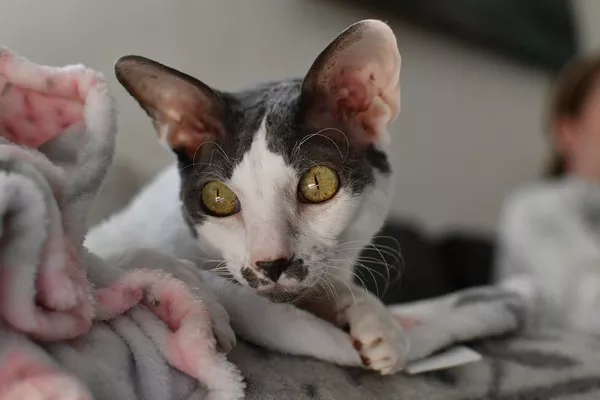The Cornish Rex is a unique and beloved breed of cat that is known for its curly, soft, and short fur. This breed has many characteristics that make it an ideal pet for many people, including its playful nature, intelligence, and affectionate personality. However, one critical aspect of owning a Cornish Rex is understanding why these cats cannot go outside.
In this article, we will explore the reasons why Cornish Rex cats should not be allowed to roam freely outdoors. From their physical limitations to potential health risks, there are several reasons why owners must keep their Cornish Rex indoors.
Physical Limitations
Cornish Rex cats are relatively small in size and have a lithe and slender build. As a result, they may not be able to defend themselves against other animals, especially larger predators like dogs or coyotes. Additionally, their small size can make them more susceptible to injuries from falls or car accidents.
Furthermore, Cornish Rex cats lack a thick coat of fur, making them sensitive to temperature changes. They are best suited to live in a consistent indoor environment, where the temperature and climate can be controlled. Exposure to extreme temperatures or weather conditions can cause heatstroke, hypothermia, or dehydration, leading to severe health problems and even death.
Predatory Instincts
Domesticated cats, including the Cornish Rex, still retain their predatory instincts. When outdoors, they may encounter wild animals, such as birds or rodents, and instinctively chase after them. This behavior can result in the injury or death of other animals and even lead to legal trouble for pet owners.
Moreover, outdoor cats often use their natural hunting instincts to catch and eat prey, including bugs, lizards, or even small mammals. This behavior can expose them to parasites, bacteria, or toxins that can lead to illness and disease.
Health Risks
Allowing a Cornish Rex to roam outside also exposes them to various health risks. Outdoor cats can come into contact with stray or feral cats, who may be carriers of diseases like feline immunodeficiency virus (FIV) and feline leukemia virus (FeLV). These viruses can be transmitted via bites or scratches, leading to severe and potentially fatal illnesses.
Furthermore, outdoor cats are at risk of contracting fleas, ticks, or other parasites that can cause infestations and transmit diseases. They are also exposed to environmental toxins, such as pesticides, fertilizers, and pollutants, which can cause respiratory problems, cancer, or organ damage.
Behavioral Issues
Indoor cats tend to have fewer behavioral issues than outdoor cats because they are not exposed to the same stressors and stimuli. Outdoor cats may experience increased anxiety, aggression, or territorial behavior due to encounters with other animals or humans. This behavior can lead to fighting, spraying, or destructive behavior in the home.
Additionally, outdoor cats may suffer from boredom and lack of mental stimulation, leading to depression or lethargy. Indoor cats, on the other hand, benefit from enrichment activities, such as toys, scratching posts, and interactive playtime with their owners.
Alternatives to Outdoor Play
While it may seem cruel to keep a Cornish Rex cat indoors all the time, there are several alternatives to ensure your pet stays active, healthy, and happy. Providing ample indoor space for exercise and play is essential, as well as providing scratch posts, cat trees, and toys to stimulate their minds.
Enrichment activities, such as puzzle feeders and hiding treats, can also provide mental stimulation for indoor cats. Regular grooming and playtime with their owners are also crucial for maintaining their physical and emotional health.
Conclusion
In conclusion, Cornish Rex cats should not be allowed to roam freely outdoors due to their physical limitations, predatory instincts, health risks, and behavioral issues. While it may be challenging to keep them indoors all the time, providing ample space and enrichment activities can ensure your pet stays happy and healthy. As responsible pet owners, it is our duty to prioritize our pets’ safety and well-being, even if that means limiting their outdoor adventures.


























